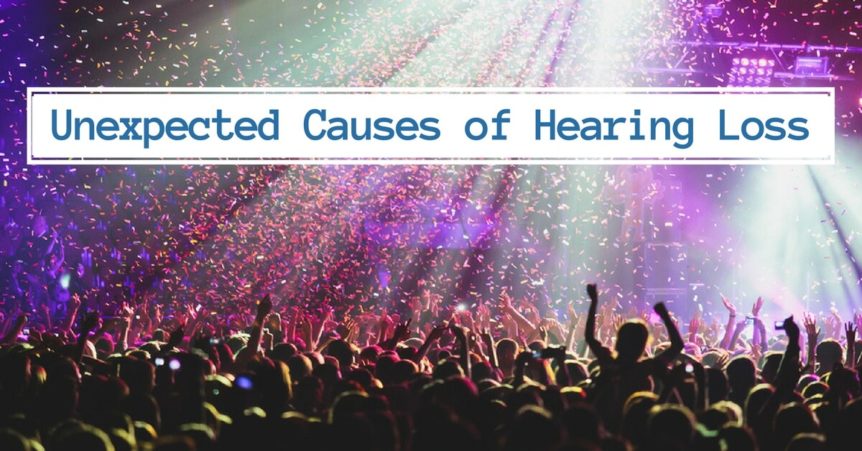Many people think about the risks of noise-induced hearing loss, and wear earplugs when going to a loud event, such as a fireworks show or concert. Occupational hearing loss is an ongoing issue, but most employees in noisy professions are required to wear hearing protection at work. But there are other, less obvious sources of noise than can do permanent damage to the ears. Be aware that hearing loss can occur in unexpected settings, in our leisure time as well as at work.
When does sound become “noise”?
Our world is filled with sounds, some beautiful, some pleasant, some mundane, some barely noticeable. But when a sound becomes harmful or annoying it is classified as noise, and noise can take a toll on the ears. Sounds that are 75 decibels (dB) or under tend to be safe, while those measuring 85 dB or over can cause hearing loss with prolonged exposure. The louder the sound, the shorter the length of time in which hearing loss can occur. Over 40 million adults in the US have noise-induced hearing loss, a permanent condition.
Transportation
Vehicles create a great deal of noise, there’s no getting around it. But many of today’s vehicles have quieter interiors than they did in the past, so commuting with the windows up does not pose a significant risk to one’s hearing. However, people who drive for a living (such as bus or taxi drivers) may be at risk, as are those who are surrounded by traffic noise day-in, day-out, such as street vendors and traffic police.
Loud barking
Your neighbor’s barking dog is more likely to be a nuisance than a risk to your hearing, but be aware: certain dog breeds can bark in the 80-90 decibel range. It would take several hours of exposure to cause permanent damage, but those who work with dogs eight hours a day (such as groomers or caretakers) could be at risk, and should take care to protect their hearing at work.
Snoring
Many people have a partner who snores, and have simply gotten used to it. Unfortunately, snoring has been shown to contribute to noise-related hearing loss, as loud snoring can reach levels of 90 dB. If your partner is a loud snorer, talk to them about getting medical help with this condition.
Out on the town
While we expect events like concerts and fireworks displays to be loud, a dinner out can also prove to be a noisy affair. The bars and restaurants of today are noisier than ever before, and many play loud music to attract customers. The average sound level of a restaurant is 80 decibels, but some have been measured at the same level of a jackhammer–110 decibels.
Community events such as football games and parades can also create hazardous levels of noise. Sirens, car horns, firework explosions, and gunfire are all loud enough to cause permanent hearing loss with a single exposure, so plan on bringing hearing protection for you and your loved ones the next time you attend a parade.
Take steps to protect your hearing
The best way to safeguard your hearing is to know when an environment is too loud, and to take precautionary steps to protect your ears in those instances. Here are a few tips to help you reduce your risk of noise-induced hearing loss.
- Head for the exit. If you find yourself in an excessively loud environment without hearing protection, the first step to consider is to leave (if possible). If you are experiencing noise at an uncomfortable level but can’t leave, try to minimize the length of exposure and move as far away from the sound source (such as the speakers) as you can.
- Keep earplugs on your person. Inexpensive foam earplugs, the kind that can be found easily at your local drugstore, can be life-savers. Keep them in a case on your keychain or in your purse or glovebox for times when you can’t escape the noise. Your ears will thank you down the road.
- Invest in good hearing protection. If you often find yourself in environments with hazardous levels of noise, be it for work or leisure, you should purchase a high-quality pair of noise-cancelling headphones or custom-fitted earplugs. If noise in your workplace is an issue, talk to your employer about ways of minimizing it.
- See a healthcare professional if you experience problems. If you notice gradual or sudden hearing loss, ringing in the ears, dizziness, pain or discomfort, see a doctor as well as a hearing healthcare professional immediately.
- Get an annual hearing check-up. A vital step in protecting your hearing is to have it evaluated annually. Your hearing healthcare provider can make sure the auditory system is working as it should, help you to treat any noise or age-related hearing loss that may exist, and give you advice on how to prevent future hearing loss from occurring.


